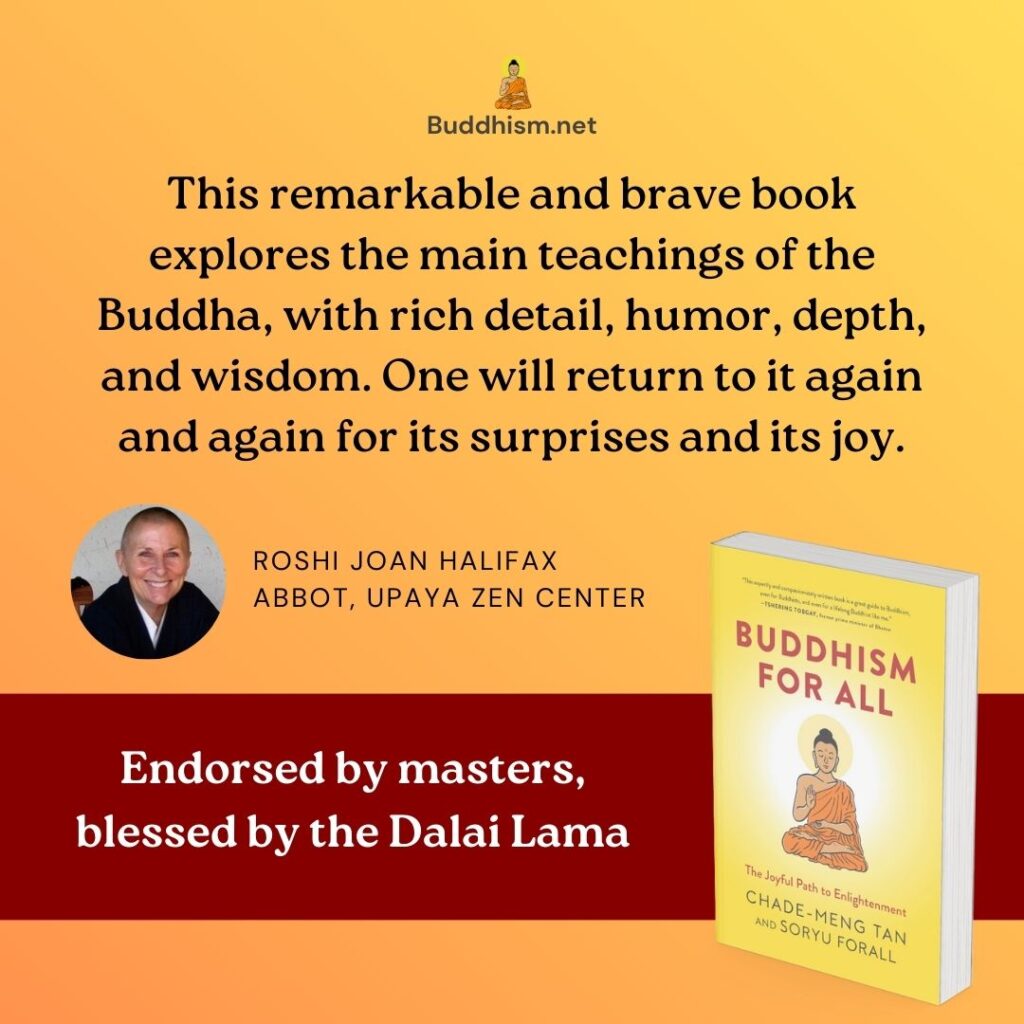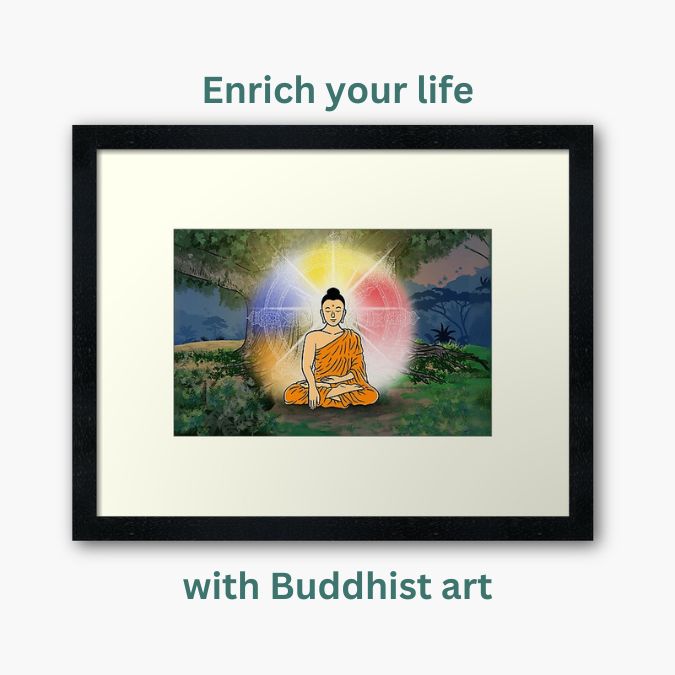
(Context: Ānanda and Mahā Kassapa’s stories.)
Seven days after the Buddha passed, the news reached Mahā Kassapa. He was at that time with a community of five hundred monks not far from Kusinārā. They quickly headed towards Kusinārā. According to the text, the townsfolk of Kusinārā could not light the Buddha’s funeral pyre, so they asked Anuruddha what was happening (remember Anuruddha possessed the “divine eye”). Anuruddha told them, “Because the gods have a different plan.” “What do the gods want?” they asked. “The gods want to wait for Mahā Kassapa.” “If that is what the gods want, let’s honor their wishes,” the townsfolk of Kusinārā decided. So, they waited. Finally, Mahā Kassapa arrived to pay his respects to the Buddha’s body. When he was done, the funeral pyre lit on its own.
Whether you interpret that story literally or metaphorically, it gives you an indication of the importance of Mahā Kassapa at this point. Both of the Buddha’s two chief disciples, Sāriputta and Moggallāna, passed into final nirvana months before the Buddha. The Buddha did not name a successor, instead telling Ānanda and the other monks that, “the Dharma and discipline shall be your teacher.” Of all the Buddha’s surviving disciples, Mahā Kassapa was the most revered. Hence, Mahā Kassapa became the informal godfather of the entire monastic community and its de-facto leader. With the Teacher now gone, everybody now looked to Mahā Kassapa for what to do next. What Mahā Kassapa did next should inspire immense gratitude from every Buddhist in the world for all time.
Remember when the news about the Buddha’s passing reached Mahā Kassapa, he was with a community of five hundred monks? As usual, in that community, there were enlightened monks, and there were unenlightened monks. When the unenlightened monks in the community heard the news, they all started weeping and wailing loudly. Except for one monk: Subhadda, he was happy. He told the other monks, “Why are you crying? You should be happy. The Buddha was always telling us we must do this, and we cannot do that. Now that he is gone, we can do whatever we want!” When Mahā Kassapa heard that, he realized that monks like this would put the teachings in future danger, hence he resolved to consolidate the teachings so that it would not be lost to future generations. With the conclusion of the Buddha’s funeral, he correctly decided that this was the most important task at hand.
Mahā Kassapa’s plan was to convene a gathering of arahants to consolidate, solidify and preserve what the Buddha taught. Remember the Buddha called his main training system dhamma-vinaya, where dhamma (or dharma) refers to the teachings and vinaya refers to the discipline. The gathering would preserve both parts. This gathering would be known in history as the First Buddhist Council. It would be attended by roughly five hundred arahants, and presided over by Mahā Kassapa. It would be held at the Sattapani cave at Rajgriha, under the patronage of King Ajātasattu.
The central character in preserving the teachings would be Ānanda, because he had, by far, the most familiarity with all the discourses taught by the Buddha. The plan was for Ānanda to tell the gathering what he remembered, and if everybody agreed that what he remembered was correct, they would all commit it to memory in a systematic way.
There was only one problem: Ānanda was not fully enlightened. Imagine a gathering of five hundred fully enlightened people and only the main speaker was not. Ānanda didn’t think it was an optimal situation either. Even worse, his own brother Anuruddha suggested strongly that Ānanda not be allowed in if he hadn’t achieved full enlightenment by then. Hence, Ānanda resolved to attain full enlightenment before the council. He practiced hard day and night, but still did not reach it.
The night before Ānanda was scheduled to testify, he practiced extra hard, but he still could not reach full enlightenment. Finally, when it got really late, Ānanda gave up and decided to lie down. As his body relaxed, right in that funny position while transitioning between sitting and lying down, he suddenly gained full enlightenment.
The next morning, according to popular lore[1], Ānanda flew into the council while sitting cross-legged. If it was true, it would make Ānanda the first person in history to fly in for a business meeting.
This meeting was mostly a conversation between Mahā Kassapa presiding, and Ānanda giving personal testimony. Mahā Kassapa would ask about a discourse, and Ānanda would usually say, “This is what I heard,” and then proceed on with the content of the discourse. This is why many discourses in Buddhism begin with “Thus I have heard” (“Evaṃ me suttaṃ”).
Soryu and I both think we are very lucky to have the combined personalities of Ānanda and Mahā Kassapa. Essentially, the discourses passed down to us are the discourses as recollected and recited by Ānanda. Even though Ānanda was supposed to be merely repeating what the Buddha said, still, it was Ānanda’s personal testimony, so very likely his kind, gentle and loving personality gave the recorded teachings a bias towards those lovely qualities. However, if it was just Ānanda alone, we might have ended up with recorded teachings that were too far biased towards loving gentleness, so it’s a good thing we also have the strict, no-nonsense personality of Mahā Kassapa to balance out Ānanda’s loving gentleness. In fact, this even played out in real life. Ānanda was sometimes too gentle with his disciples, so some of them became lazy and undisciplined. Mahā Kassapa saw that happening and chided Ānanda, telling him his laxity with his disciples was a disservice to them, for which Ānanda apologized. I think that perfect combination of personalities gave the recorded teachings the right amount of loving gentleness without compromising its necessary strict rigor. We are so lucky.
The central character in preserving the discipline was a highly prominent monk called Upāli, who testified to the monastic code. In fact, Upāli’s testimony came before Ānanda’s.
Upāli was born into the Sudra caste, a low caste whose members were destined for menial work. When he grew up, he became a barber, and he was so good at his job he ended up cutting the hair of the Shakyan princes. When the Buddha first visited his hometown as the Buddha, a group of six Shakyan princes, including Anuruddha and Ānanda, decided to become Buddhist monks. They decided to head to where the Buddha was staying, and they brought along their favorite barber, Upāli. When the princes got near, they had Upāli shave off their hair and beard, and they gave him all their jewelry in gratitude for his years of service. As they bid farewell to Upāli, he told them, “Wait, I can’t go back home now. I came here with you princes carrying my blade. If I return without you but with all your jewelry, people will think I murdered and robbed all of you, and those fierce Shakyans may kill me. So, I would rather go with you.”[2] So, they left all their jewelry there and headed towards the Buddha.
When they saw the Buddha, the princes asked him to ordain Upāli first, because Upāli came from a humble background and the princes wanted to do this to humble their own Shakyan pride. The Buddha agreed. That was how Upāli was ordained before Anuruddha and Ānanda, and how he became their senior in the monastic community.
Upāli gained full enlightenment and became a respected expert on monastic discipline and the monastic code, so he did for the monastic code at the First Council what Ānanda did for the teachings. And with that, the First Council had both parts of dhamma-vinaya.
Activities
- Reflect on this post with Angela:
- My favorite part in this story is the final enlightenment of Venerable Ānanda. The key is to let go totally.
- What stood out to you from this article? Why?
References
[1] Recorded in the 5th century CE publication, the Mahāvaṃsa.
[2] The story of Upāli can be found in Khandhaka 17 of the Theravada Vinaya, and part of it retold in Nyanaponika and Hecker, Great Disciples of the Buddha: Their Lives, Their Works, Their Legacy (The Teachings of the Buddha).
Artwork by Colin Goh.
.


